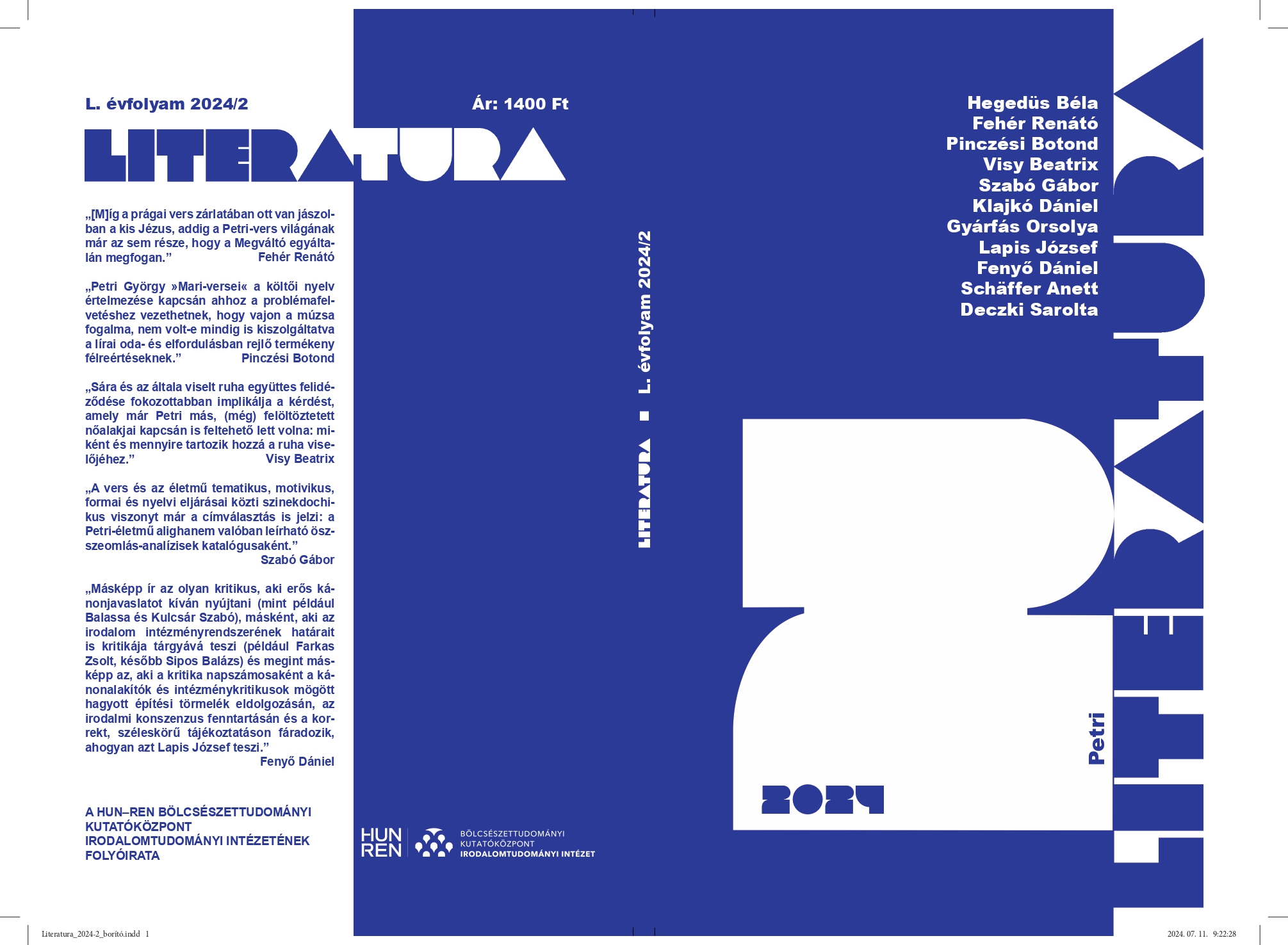„lehetetlen színű zöld kardigánban”
Veszteség és öltözék összefüggései Petri György Sára-verseiben
Absztrakt
Az öltözék jelentős szerepet tölt be Petri György költészetében, s különösen a Kepes Sára alakjához kapcsolódó Sára-versekben. Tanulmányomban a ruha szerepét és a költőt ért veszteség poétikai összefüggéseit vizsgálom, miként vesz részt az öltözék ábrázolása a Petri-lírát meghatározó, traumatikus „ősélmény” felidézésében és elmondhatóságában. A téma kifejtése során a fenomenológia meglátásai felől közelítek test és ruha viszonyához, az észlelő és érzékelő tekintet tapasztalatához. Értelmezésem középpontjában a legjelentősebb Sára-vers, a Sári, ne vigyorogj rajtam áll, melynek gondolatmenetét két motívum szervezi, a fényképen látható vigyor és a virágmintás ruha. Mindkettő a tragikus múltbeli esemény elmondásának eszköze, amelyek segítségével a költőt ért veszteségérzet és önvád valamennyire artikulálhatóvá válik. A költemény kitérőkkel terhelt, töredezett szekvenciái, a mellébeszélés, bagatellizálás gesztusai, a fotóra merevedett, gúnyosnak értelmezett vigyor, a múltbeli eseményt, a nő halálának tényét elfedő, leplező ruha a trauma jelenlétét tanúsítják. Az Örökhétfő című kötet időszakára jellemző versnyelv e kötet Sára-verseiben a traumatikus tapasztalat kifejezésére is alkalmasnak bizonyul, azaz a trauma nyelvi kifejezhetőségét – kifejezhetetlenségét érzékeltető poétikát eredményez.



